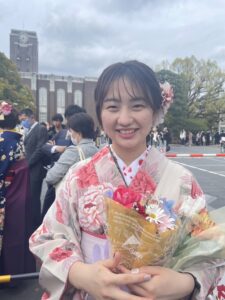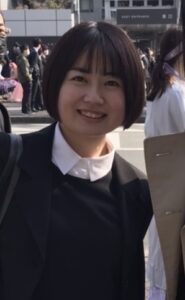Introductory Video of GSGES
<AY2025>
VOICE 1
AMERIDYANI Adzani Ardhanareswari
Doctoral Program in Global Environmental Studies
Regional Planning
Reflecting on my academic journey Kyoto University GSGES, I feel immensely grateful to have been part of such a dynamic and inspiring community. Completing my master’s degree and now pursuing my PhD at Kyoto University GSGES has been a truly transformative experience—both personally and professionally.
One of the most enriching aspects of this journey is the chance to study interdisciplinary issues alongside brilliant minds from around the globe. The program’s unique approach encourages the integration of knowledge across fields such as environmental science, economics, and policy, empowering us to tackle real-world challenges through diverse perspectives. This exposure has broadened my understanding and underscored the importance of collaboration and open-mindedness in addressing global issues. Throughout my studies, I have learned the vital skill of communicating complex ideas clearly and effectively, especially when engaging with those outside my specialization. This ability has been crucial in my PhD research, as it helps bridge the gap between technical research and practical applications, particularly in advocating for policies that uplift rural communities.
I am also fortunate to belong to a supportive and collaborative lab environment. My lab mates and I engage in enlightening discussions that challenge me to think critically and refine my ideas. These conversations inspire me and broaden my understanding of my research topic while fostering a deep sense of academic community. The support of my peers has been pivotal for my personal and academic growth, and I deeply value the collegial atmosphere we share.
My experience at Kyoto University GSGES has enriched my academic perspective and sharpened my research skills. I am motivated to apply this knowledge to empower rural development, focusing on strengthening the resilience of marginal farmers and transforming inclusive agricultural systems. I am excited to take this knowledge into the field, where I hope to collaborate with NGOs, government agencies, and international organizations to design and implement sustainable solutions that improve the livelihoods of farmers while fostering long-term environmental and social sustainability.
VOICE 2
TOHYA Hiroki
Masterʼs Program in Environmental Management
Environmental Economics
I studied at the Department of Agriculture of Meiji University and then enrolled in Kyoto University Graduate School of Global Environmental Studies (GSGES) to pursue my master’s degree. I am currently specializing in Environmental Economics under Professor Kenji Takeuchi, conducting research and analysis on the edible insects’ utilization and their practical application into society.
I first learned about GSGES from my advisor during my undergraduate studies. When I consulted them about advancing my studies, they advised me to pursue an environment where I could have a broad perspective and a wide range of options. That advice led me to choose GSGES, where I could study not only economics but also a variety of other fields, including engineering, sociology, and agriculture.
Since enrolling, my days have been filled with learning and discoveries that have far exceeded my expectations. In addition to my major, I am constantly surprised and amazed whenever I encounter new perspectives and values during discussions and presentations with students from diverse nationalities and cultures, all conducted in the common language called “Global Environmental Studies” and English. Working in the fields I had never explored before such as ecology, civil engineering, and ethics also helped me gain new perspectives and ideas, which enabled me to expand my own research. Every time I gain new insights through my interactions with diverse faculty members and students, I am more certain that choosing to pursue my studies this way was the right decision.
In the next academic year, I plan to conduct a field experiment on the commercial use of edible insects in Laos as part of my internship. While conducting research in an unfamiliar culture and environment does come with some challenges, I am confident that the experience of thinking of solutions for social issues by myself and taking that first step will be indispensable for my growth.
To address societal issues like global environmental challenges, it is essential for people from different fields of expertise to respect one another and collaborate. Studying at GSGES truly embodies that philosophy and provides an ideal environment for developing a multifaceted perspective.
Past Voices from Students
<AY2024>
VOICE 1
OBIKE Kingston Tochukwu
Doctoral Program in Environmental Management
Terrestrial Ecosystems Management
I have always been interested in a variety of disciplines, from history and government policy to the physical and natural sciences. I do not intend to limit myself to any one discipline, but rather to gain knowledge from many.
I stumbled upon GSGES while going through the publications of a faculty member who would become my supervisor, and I believed in GSGES’s policy of research interdependence and interdisciplinary approaches to solving or mitigating humanityʼs most contentious problems in our shared global environment.
As a masterʼs student during the peak of COVID-19 in 2021, social interactions, research collaborations and international travel were limited. However, despite this unprecedented situation, I still had the opportunity to learn from GSGES’s extensive English-taught courses, which cut across multiple disciplines with an environmental focus. When in doubt, I was able to consult with many of the academic staff who were always willing to share their own experiences and insights on many topics. To gain practical experience, I interned at the Japan International Research Center for Agricultural Sciences (JIRCAS) in the subtropical paradise of Ishigaki, Okinawa Prefecture.
Currently, there are concerns about agricultural production and quality due to global warming. As a PhD student at GSGES, I am interested in the nutrition of tropical fruits (such as passion fruit) in relation to different terrestrial environments. I believe that exploring the limitations of passion fruit nutrition in different soils in the Nansei islands of Japan, and deriving solutions to these limitations, will expand the possibilities of cultivation in new regions not previously considered. This will enhance good quality production, possibly even for other tropical fruits with similar characteristics to passion fruit, thus limiting the dependence of farmers on regions more prone to the devastating effects of global warming.
Finally, with my background in applied geophysics (prior to my enrollment at GSGES) and soil science, and the opportunities still made available to me by GSGES, I am now part of the vast number of other researchers who are working honestly, diligently, and passionately to develop interdisciplinary solutions to global environmental problems, and for that privilege I am grateful.
VOICE 2
OGATA Riho
Masterʼs Program in Environmental Management
Environmental Infrastructure Engineering
I graduated from the Department of Civil, Environmental and Resources Engineering in the Faculty of Engineering and I am currently pursuing a Masterʼs degree at the Graduate School of Global Environmental Studies (GSGES), specializing in Environmental Infrastructure Engineering. Through my studies at GSGES, I have gained two significant insights.
First, the process of repeated input and output has allowed me to acquire practical and proactive learning experiences. Classes provided ample opportunities for discussions and presentations, enabling me to digest the knowledge I acquired and then use it. Fieldwork was conducted in the Keihoku region, extending the learning environment beyond the confines of the classroom. Getting hands-on experience has deepened both my theoretical and practical understanding. In these ways, classes have evolved into platforms for profound learning, encompassing not just the transmission of knowledge but also presentations and practical applications.
Second, as a result of my studies, my perspective on various matters has broadened. Learning about Global Environmental Studies with students from diverse backgrounds and disciplines has made me appreciate different perspectives on the same theme. For instance, even in the area of soil research, viewpoints differ between the Department of Agriculture and the Department of Engineering in terms of approaches and future goals. Furthermore, students from different specialist fields bring their own unique approaches, allowing me to learn from multiple perspectives within the same academic discipline. Through these opportunities to learn about fields I had not been exposed to before, such as economics and pedagogy, and a three-month internship in the United States conducting research, I have broadened my horizons.
Upon entering the program, I aspired to gain extensive knowledge and experiences, and I am pleased to say that student life at GSGES has surpassed my initial expectations. Engaging with diverse individuals, sharing learning experiences, conducting in-depth research in my specialist field, and learning from various perspectives have all contributed to the expansion of my academic and personal horizons—beyond what I had originally envisioned. Going forward, I aim to leverage this multifaceted learning to realize my goal of improving the global environments.
<AY2023>
VOICE 1
Augusto Cesar Oyama
Master’s Program in Environmental Management
Terrestrial Ecosystems Management
To the comrades who seek or are considering possibilities to be affected by the context of this island and by hopeful transoceanic experiences, reasons that led me to choose GSGES, I will say about this essay two certain subterranean affinities: first, that our reconstructed past, at once individual and collective, is not a refuge, but a source of reasons to fight; second, that perhaps all starts with the sentiment of belonging to the furthest things, being connected and held by forces (ideas, projects, dreams), imagining and undertaking actions tending to legitimize and materialize them.
About the first provocation, in the face of so many experiences made feasible from GSGES/Global Environmental Architecture laboratory – experiences that are particularly impossible to narrate due to the specific intensities – I think that accepting to occupy this place and be affected by it opens up a specific communication with ourselves. At Kyodai/GSGES, we can find friends with whom we share a sensibility and a similar way of asking questions. Being together like this, frontiers of knowledge are diluted.
My research, for example, seeks to illuminate and stress contexts of violations of land and housing rights in Brazil and Japan, using a particular reading key on disasters related to large urban interventions. I was able to meet organizations and collectives from this island and from Latin America and Europe that emerged due to these complex realities. Such intense meetings were boosted by the programs, courses, and day-to-day life experienced especially (but not only) from this common place, Kyodai/GSGES.
About the second provocation, the small part that falls to me is to say what I think we often lose sight of: it is fundamental to situate our social responsibility in every place where we act; and this responsibility, this individual endeavor, but always with a collective signature, is what can drive dreams. Taking advantage of GSGES and the university’s vibrant environment, as well as legitimizing our decisions, systematizing the experience, and communicating it, is in some way paving the way for our society projects and also for the next comrades. After all, the meaning of all this is to reverberate and exchange these multiple narratives.
VOICE 2
MORIOKA Tamaki
Doctoral Program in Global Environmental Studies
Environmentally-Friendly Industries for Sustainable Development
I matriculated into a doctoral program at the Graduate School of Global Environmental Studies (GSGES) after completing my studies at Kyoto University’s Faculty of Agriculture and my Master’s Program at the Graduate School of Informatics. My career objective is to do something that concerns global environmental issues. Knowing that GSGES offers an opportunity to learn about multiple perspectives on environmental problems through research work, I enrolled at GSGES.
One of the appeals of researching at GSGES is that researchers are made aware of how their work is relevant to society. Through my research, I am fortunate to have many opportunities to discuss with persons from research institutions and private enterprises, although internship studies are not required for the Doctoral Program in Global Environmental Studies. Those experiences helped me form a habit of focusing on what I should elucidate in my research work to resolve environmental issues and to sustain and develop society and the economy simultaneously.
Another thing I love about studying here is that students and researchers from diverse backgrounds are welcomed. Because the student body is so diverse, some with working experience and others with international backgrounds, with a nice blend of humanities and science students, students can avail themselves of comprehensive support so we can learn and study from scratch. I joined GSGES from its doctoral program to work on a research topic that was new to me. I think I have been able to further my studies steadily thanks to the casual atmosphere, which encourages me to enjoy small talk with my peers or seek counsel from my advisors. Furthermore, because everyone feels so comfortable speaking to or discussing with other students from different backgrounds, students can learn about new perspectives daily, be it values relevant to life or points of view for researchers, which then allows us to deepen our critical thinking from even more diversified perspectives.
I believe that GSGES opens its doors wide to applicants who are interested in global environmental issues and eager to learn and study with hands-on approaches.
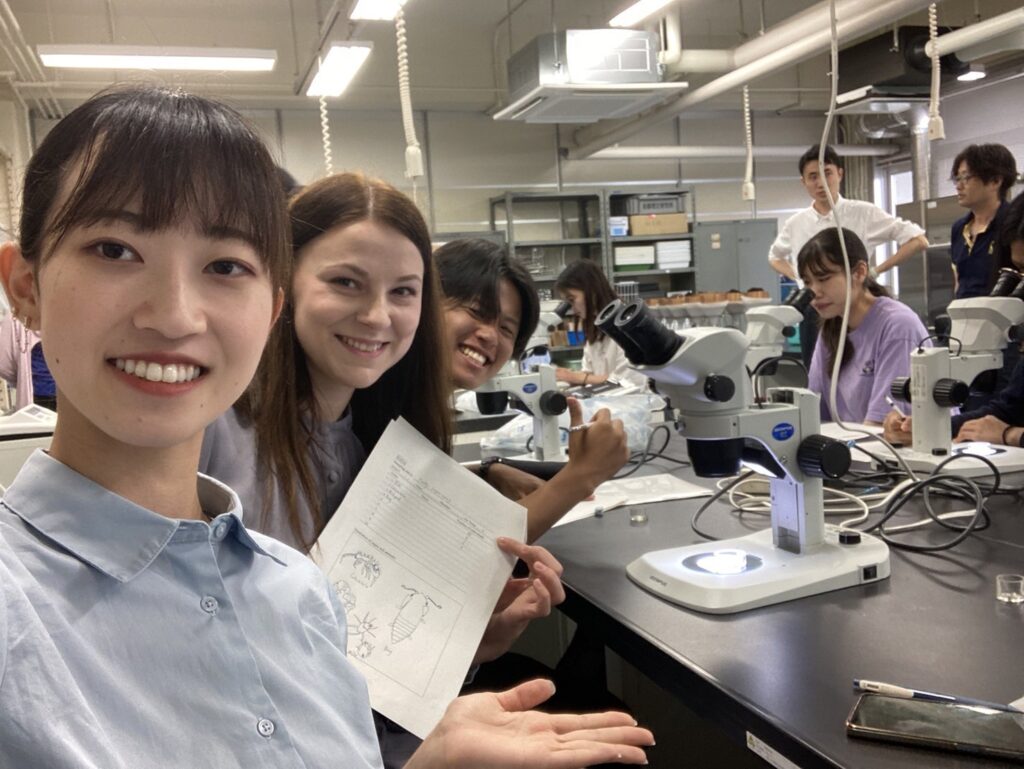
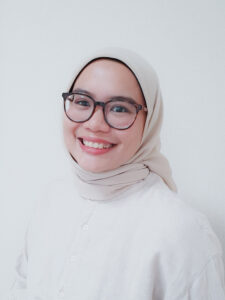
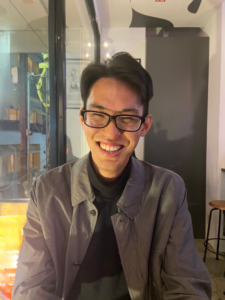
Voices-from-Students-OBIKE-Kingston-Tochukwu-225x300.jpg)
